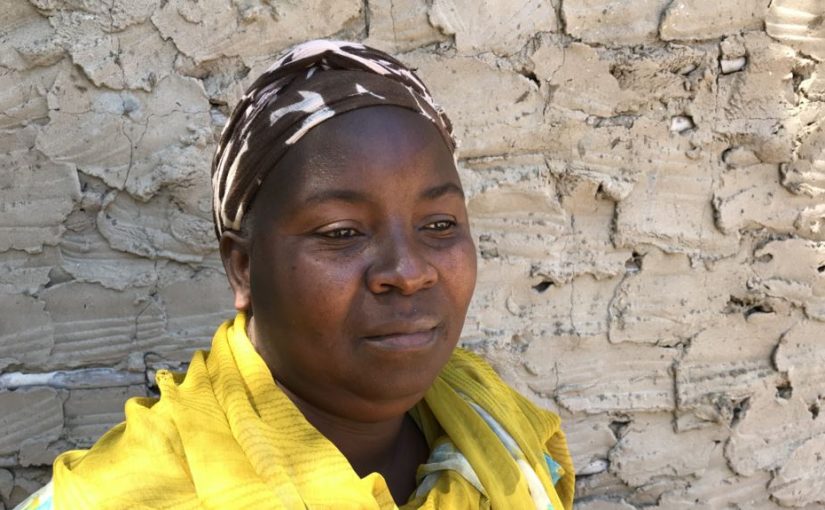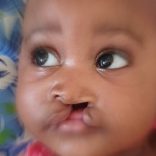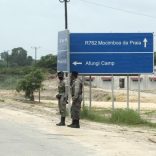Mozambique: Japan donation to finance education, health projects
Maria Rachide, life interrupted: One of many women in Cabo Delgado

Maria Rachide survivor of an insurgent attack , photographed in Pemba, Cabo Delgado, Mozambique
Maria Rachide was preparing to assist in her first delivery on Women’s Day, April 7, when rumours that insurgents were invading the village arrived at the Muatide Health Centre in Muidumbe district.
She dropped everything and ran home, her only thought, saving her family.
When she arrived home, her husband had already assembled their four children and two nephews, previously orphaned by the insurgency. There was no time to talk, the sounds of shooting less than half a kilometre away. They ran off – in opposite directions.
Maria, her daughter and two nephews hid in the woods for three days, with nothing to eat or drink. On the fourth day, they discovered cassava plantations near their hiding place, which they harvested and ate.
That day, the sound of gunshots having ceased, the nurse and other displaced people walked home. The scenario was deplorable – houses, shops and district institutions burned.
“When I returned home, I was unable to locate one of my children. I went back to the woods. Desperation gave me the energy to call her name. She appeared and we resumed our flight.”
Maria Rachide shares the sad moments with embarrassment and unease, saying she doesn’t want anything of that sort to happen ever again, even to her worst enemy.
“I started walking through the woods with the children, but we could hear shots in a neighbouring village. We were tired and spent the night in the bush. We left early the next day and walked towards Mueda. On the way, a motorcycle taxi gave us a lift, but we didn’t reach our destination, because there were many soldiers there who could complicate matters,” she says.
After more days of suffering, they arrived in Pemba, the capital of Cabo Delgado, and stayed at her sister’s house, making 28 other people, most of whom had fled the Macomia insurgency.
“Invisible war”
Not much different is the situation of teacher Martins Ninta, today also forced into unemployment and dependence in Pemba.
“We were attacked hard,” says Ninta, 42, his speech highlighting the force of the attack which resulted in the temporary capture, on March 25, of the town of Quissanga.
Ninta, his wife and grandson were in the district headquarter town when it was invaded by a group of insurgents, at one o’clock in the morning. They vandalised everything they set eyes on.
“We had already anticipated them, fleeing to the mangroves near the beach. From there, each went his own way; some to Ibo, others to Quirimba. Some, who had the means, took the boat to Pemba,” the teacher from the Bilibiza training centre says.
His exile to Pemba was by sailing boat, one of the many overcrowded, ramshackle vessels making the trip. In his case, there were 50 people on a boat designed for no more than 20.
Malaria, cholera, coronavirus
“The invisible war,” as he calls it, took him away from his town and his students. Today, he is dependent on help at the home of family members who themselves survive on little.
Far from the comfort of their quiet villages, Maria and Martins now face health risks in a city with a history of malaria and cholera, now further aggravated by the arrival of Covid-19.
Of the more than 80 positive cases of coronavirus that Mozambique has registered, about 60 were detected in Cabo Delgado. This year, 610 cholera cases and 12 deaths were registered. Malaria is endemic.
In two and a half years, the insurgency killed 1,100 individuals. More than 160,000 have become internally displaced.
Food aid
Pemba is now the safest place in Cabo Delgado, and welcomes most of those fleeing the districts most vulnerable to attack. But the survivors seek more than safety. They need food and adequate shelter to avoid putting pressure on their families.
Caritas Diocesana, the Catholic church’s charitable organisation, supports those in Pemba displaced by the insurgency, and has expressed concern about the growing number.
“The great phenomenon that we saw, here in social confinement, is that households have multiplied. A (small) place sheltering more than 20 people in a coronavirus pandemic is far from ideal, and that worries us a lot,” the Catholic priest of the Diocese of Pemba, Latifo Afonso, says.
Restrictions on access and security concerns meant that, in April, World Food Program (WFP) humanitarian assistance reached only 39,500 beneficiaries, out of a total of 95,000 people (19,000 families) in need in the districts of Pemba, Metuge, Nangade , Macomia, Palma, Mueda and Montepuez.
On April 7, the WFP lost 116.6 tons of grain, vegetables and cooking oil to the insurgents in Mahate (Quissanga) the first documented case of armed groups invading a humanitarian aid warehouse without causing injury or death.
“Any food not delivered directly to vulnerable populations is a loss for humanitarian support,” James Latimer, WFP interim director in Mozambique, told VOA, promising that “theft will not prevent WFP from continuing to provide food assistance to communities in need”.
Latimer says the United Nations in Mozambique is mobilising resources to respond to the needs of the most vulnerable, those forced to flee their homes by the insurgency and the Covid-19 and cholera epidemics.
But the displaced do not want to live the rest of their lives dependent on aid. They want peace, and to return to their villages.
“We ask our government to take those men out of action. The city is full; the government will not be able to support all families,” teacher Ninta says.
By André Baptista












Leave a Reply
Be the First to Comment!
You must be logged in to post a comment.
You must be logged in to post a comment.